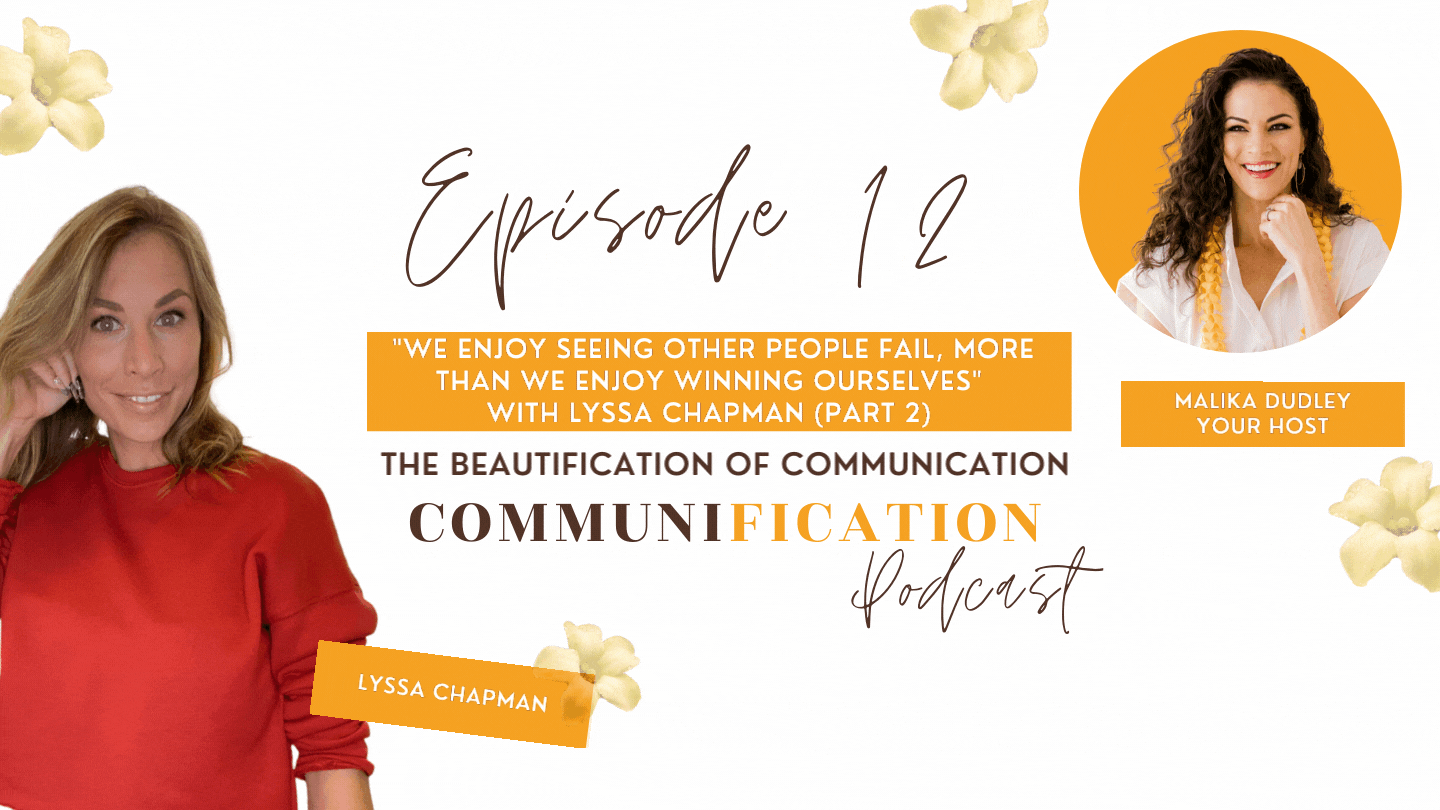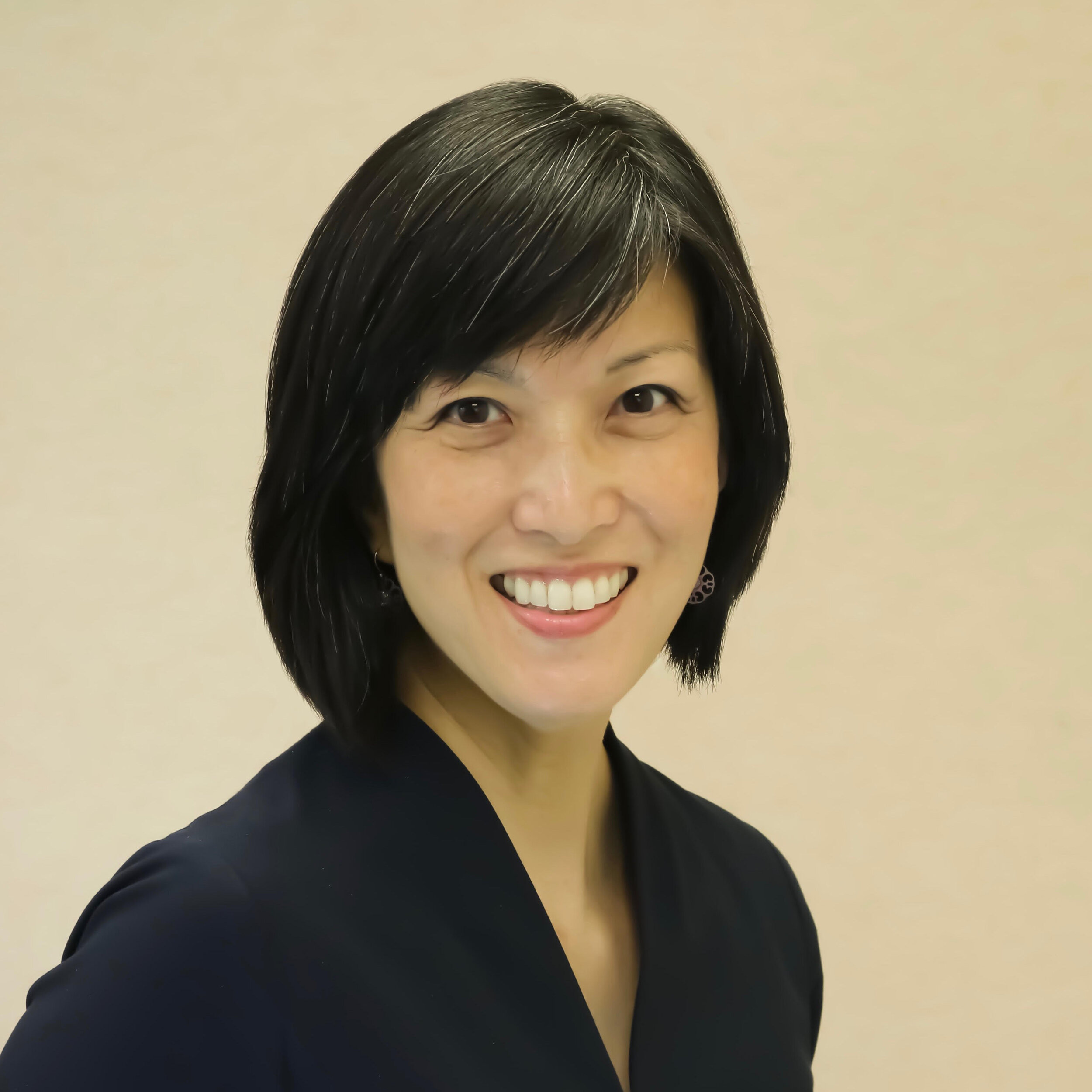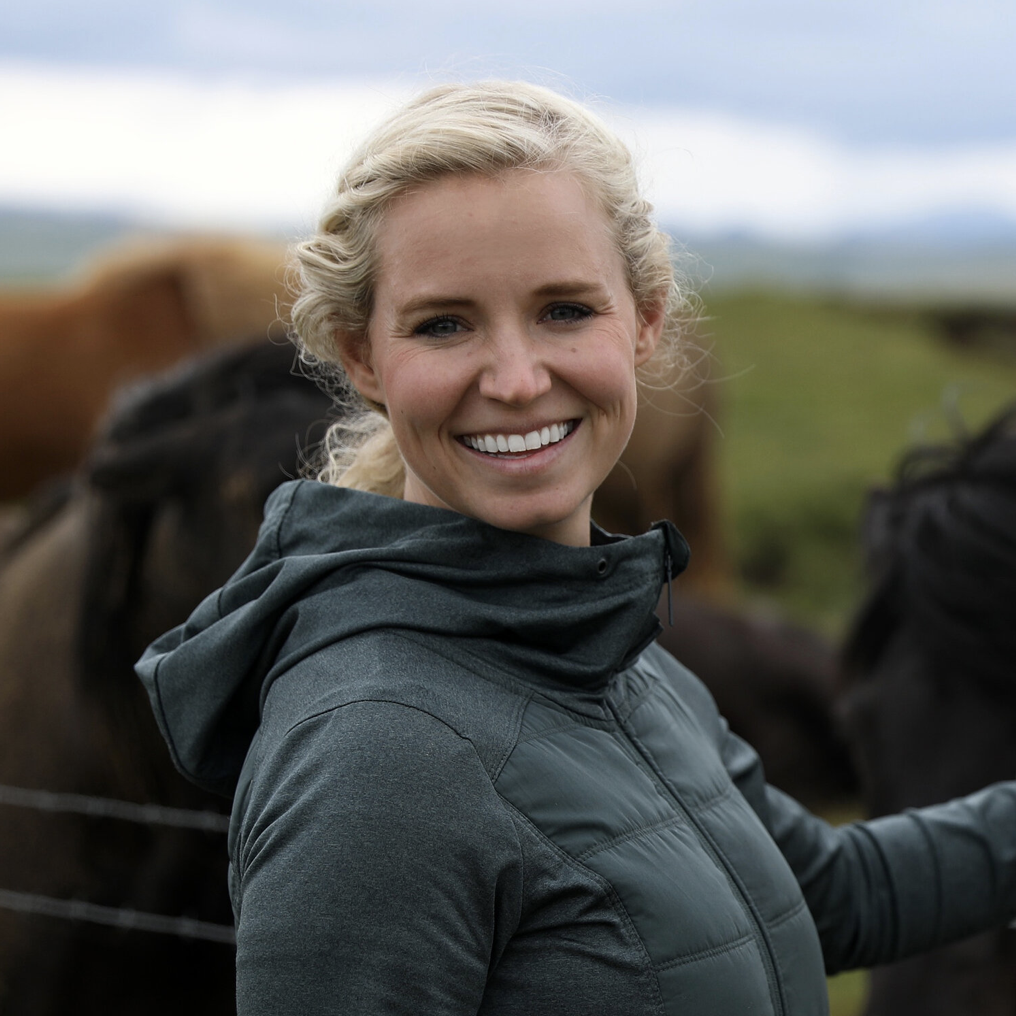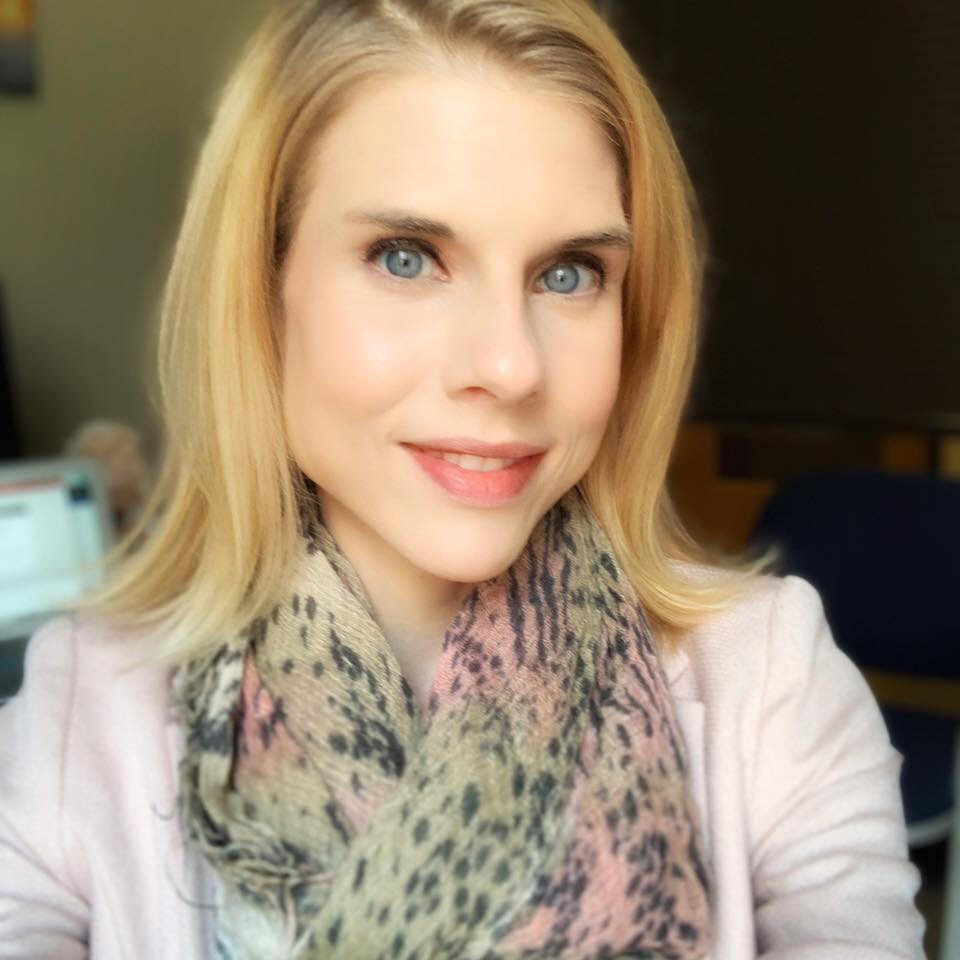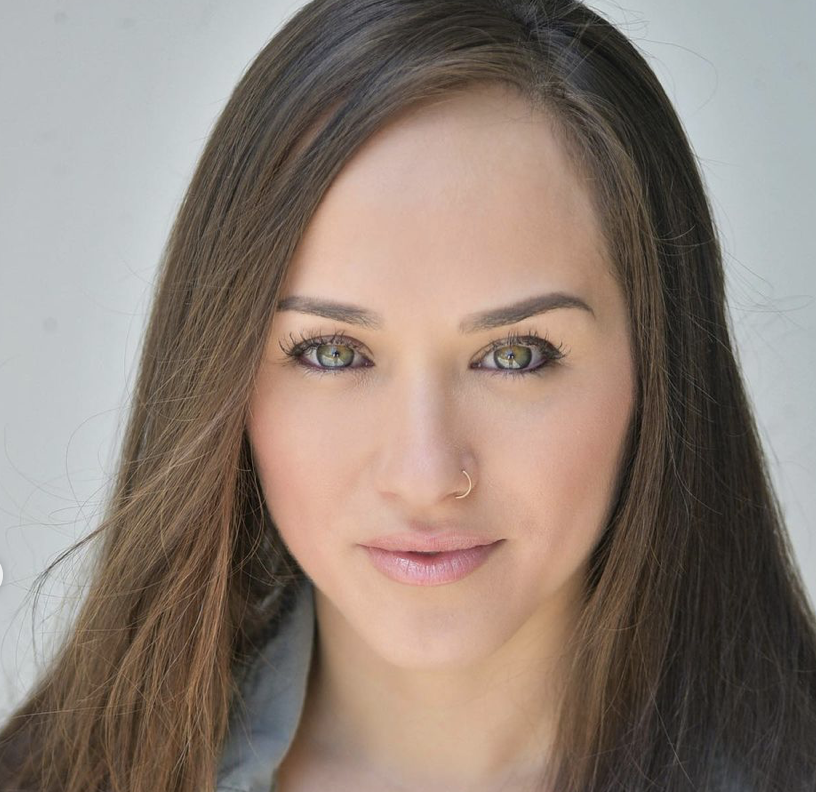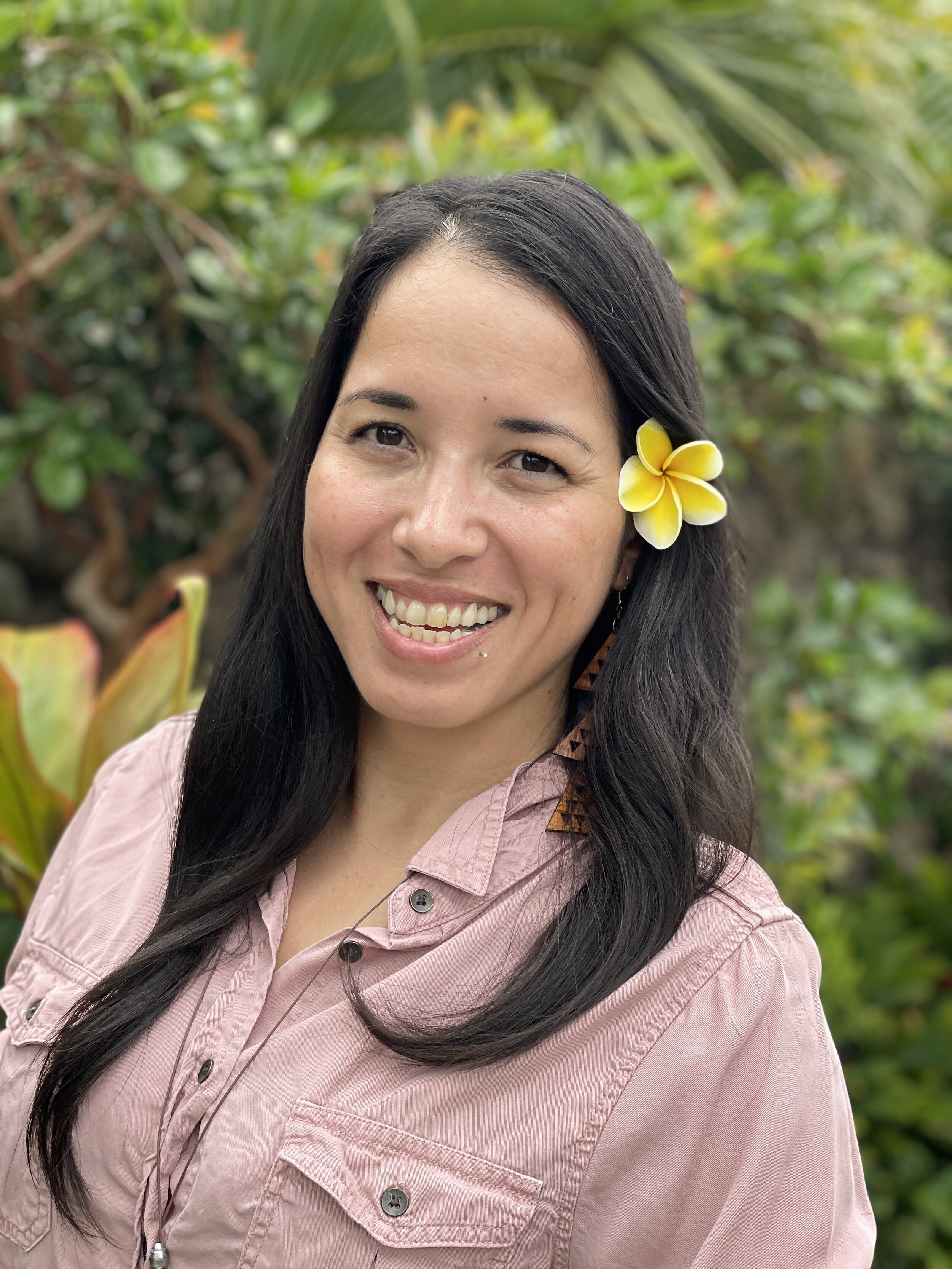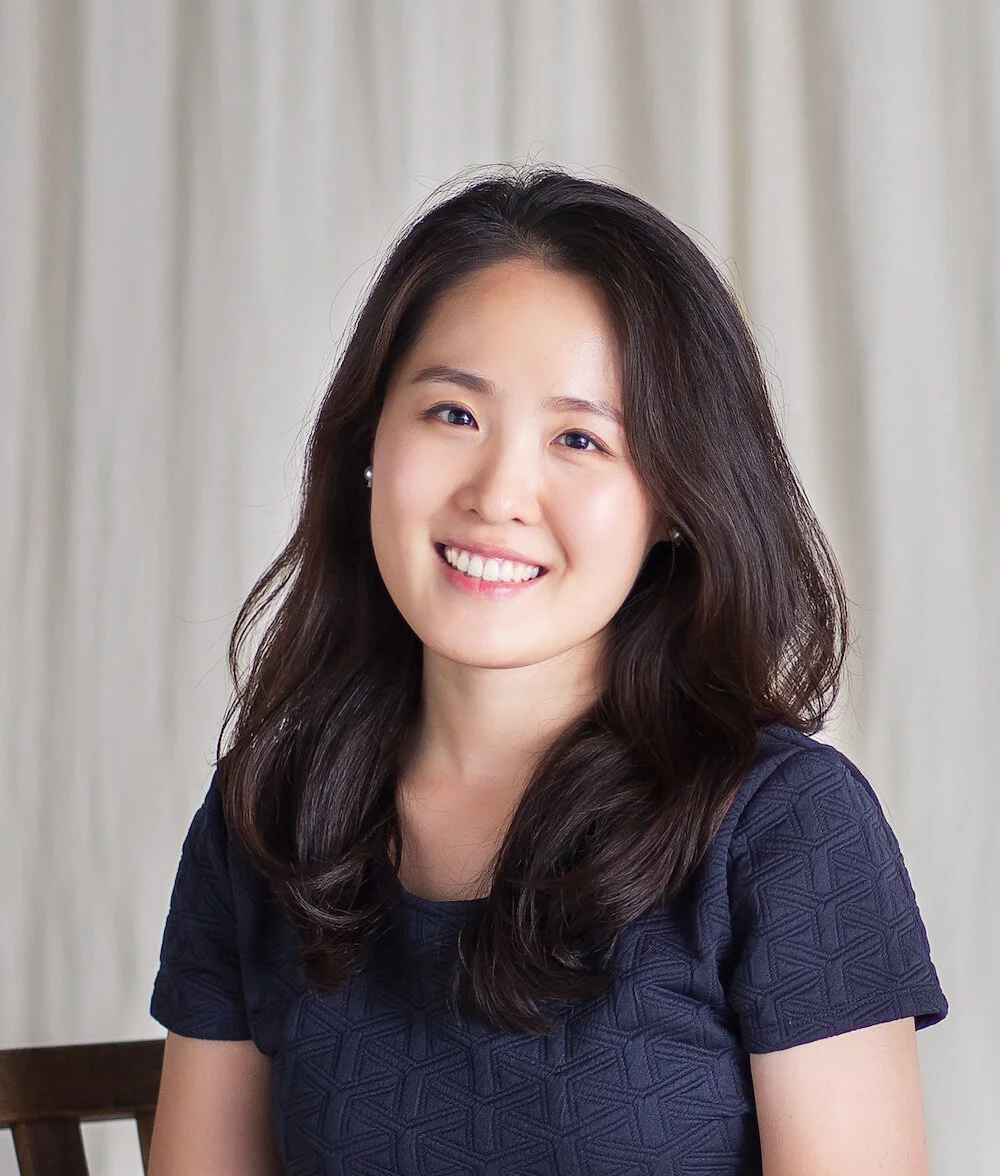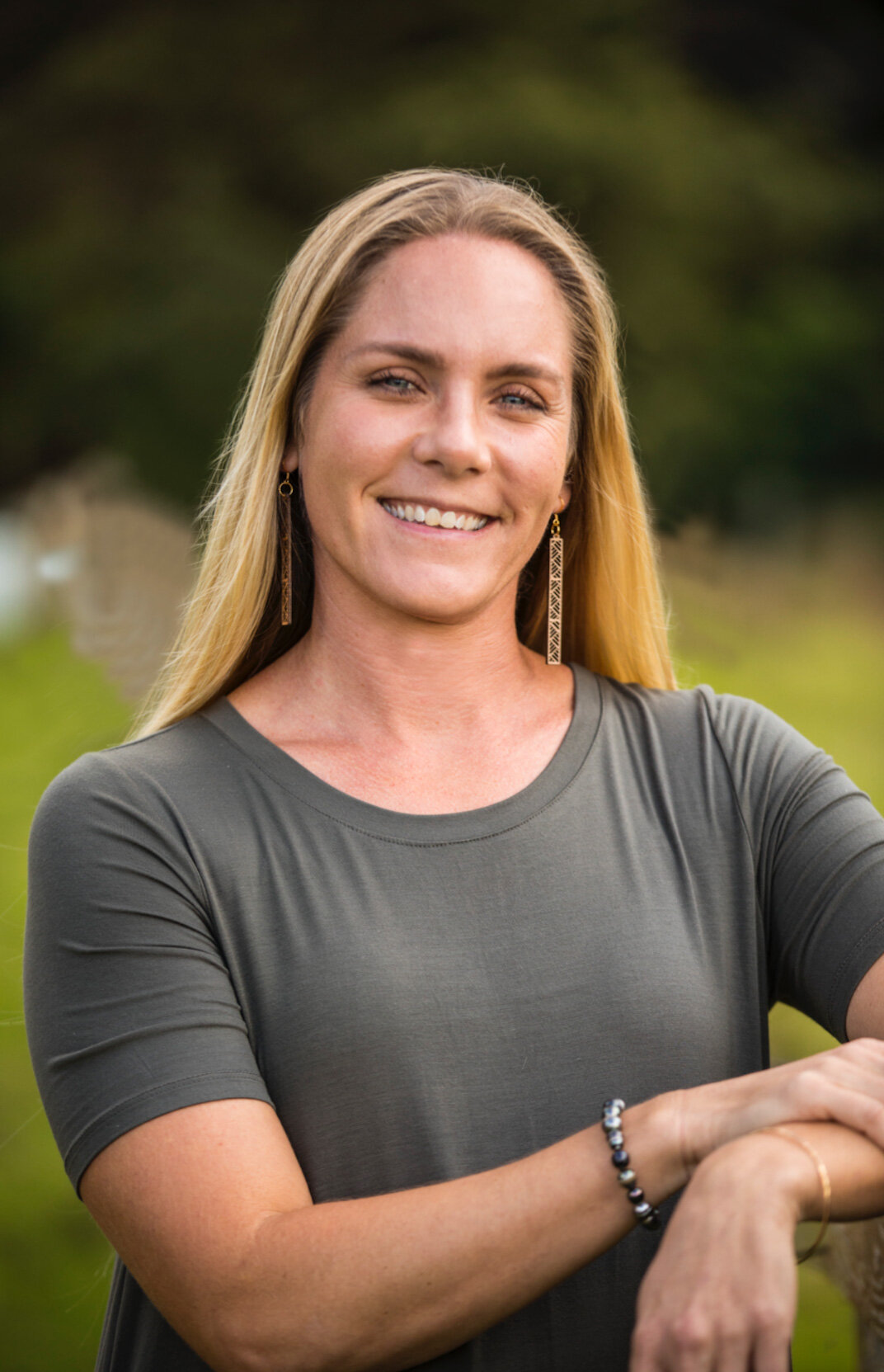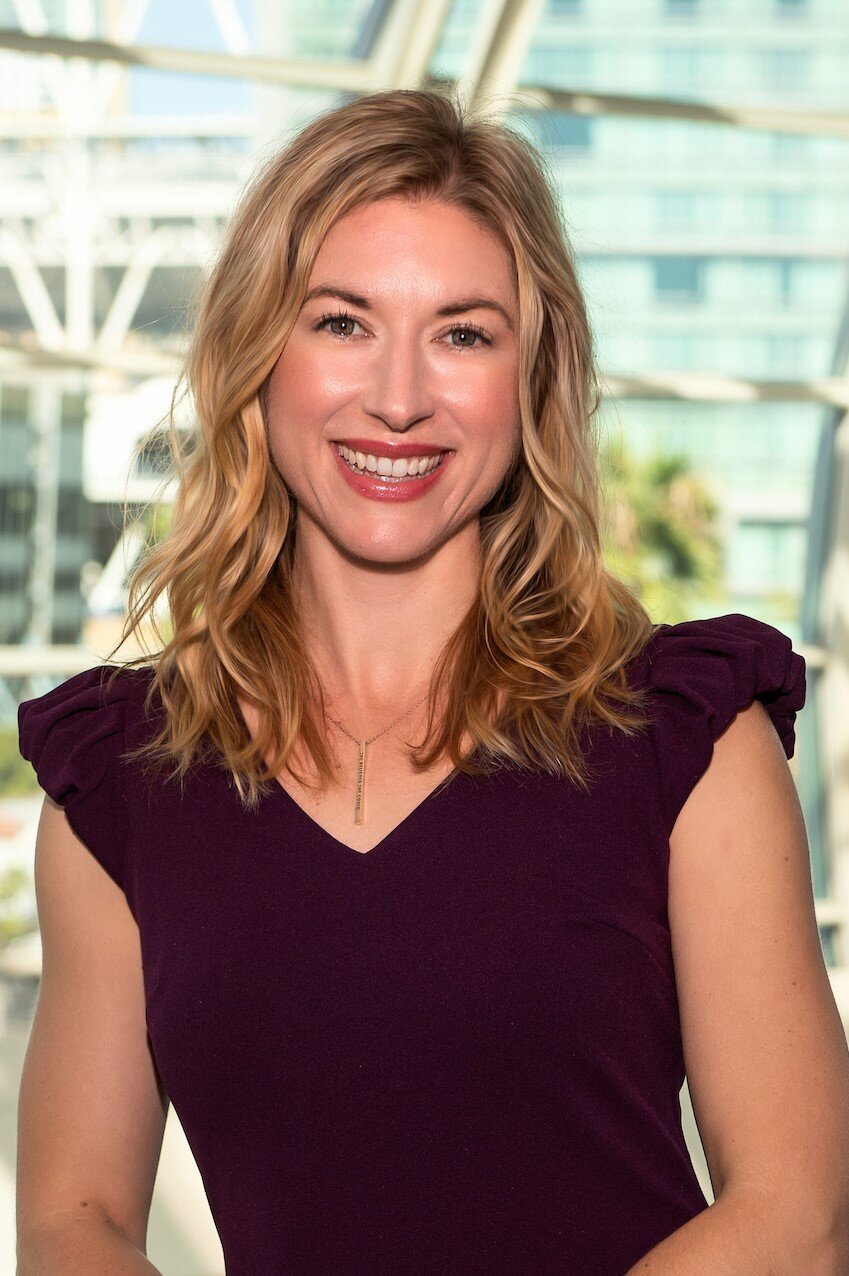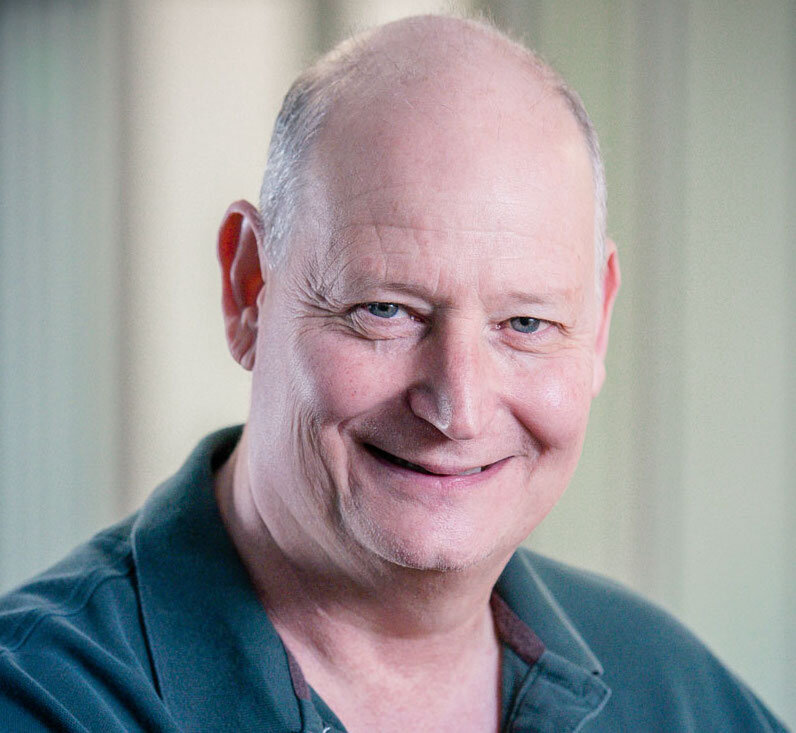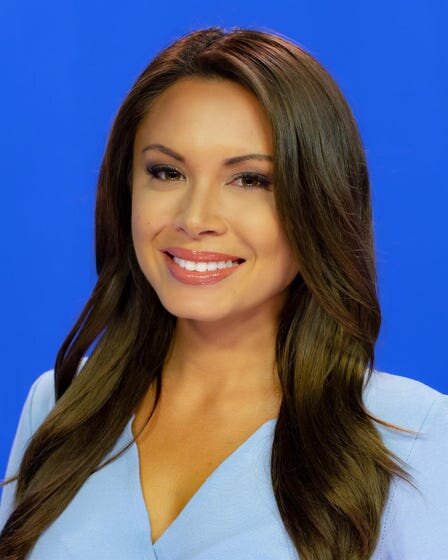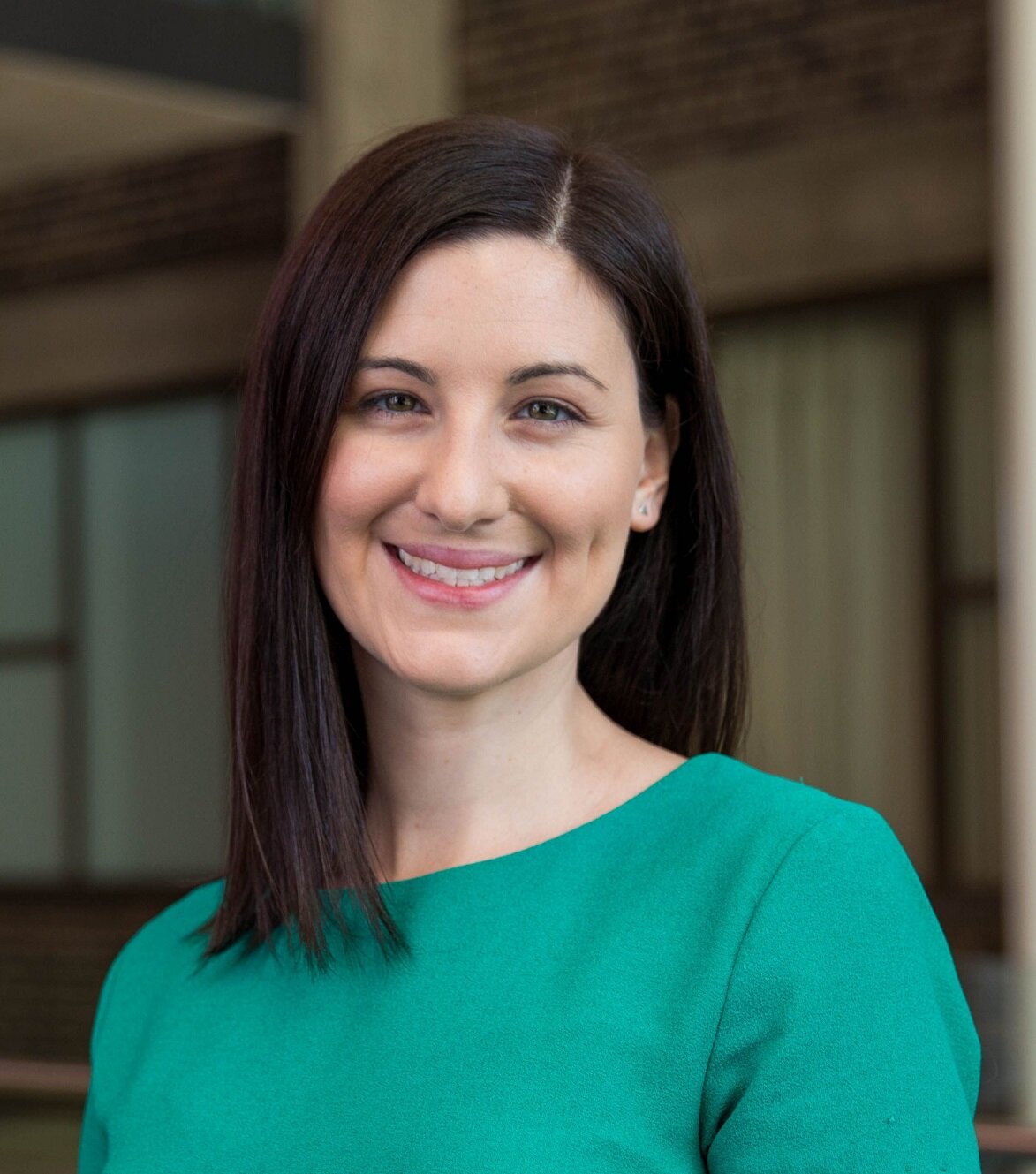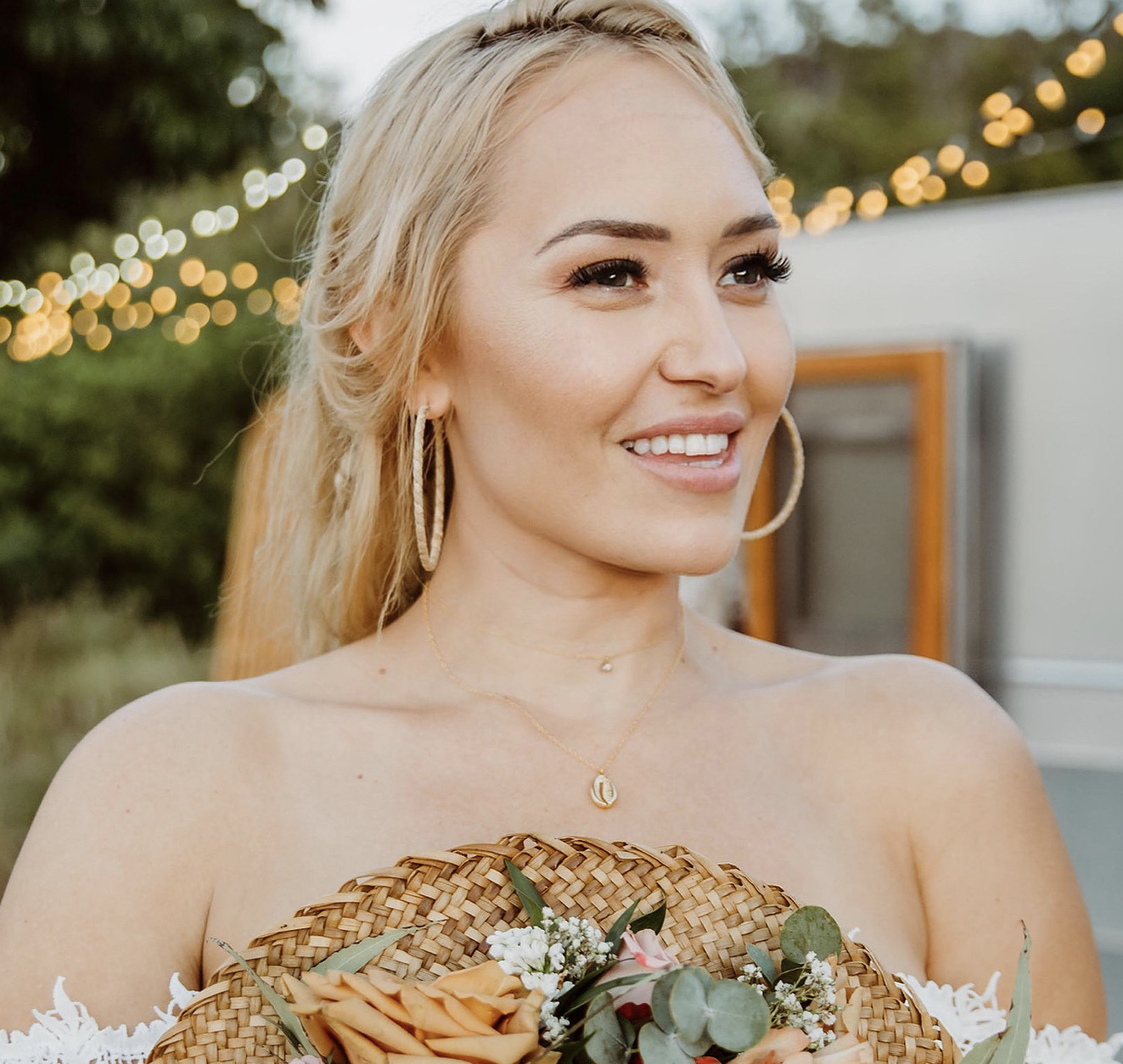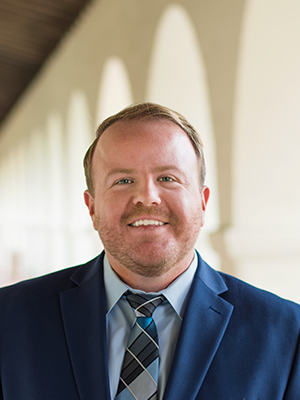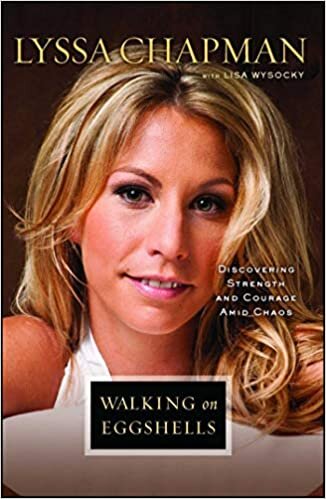Ep. 12: “We enjoy seeing other people fail, more than we enjoy winning ourselves” - Lyssa Chapman (Part 2)
Below you will find the show notes for “Episode 12” of the Communification Podcast.
Mahalo for listening! Welcome to the ‘ohana!
Mahalo to The Barrier Method and the Show Aloha Challenge Foundation for their donations to local non-profits!
The Barrier Method / Non-profit: Center for World Peace.Love
Show Aloha Challenge Foundation / Non-profit: Maui Food Bank
In this episode we talk to Lyssa Chapman about bullying and cyberbullying. She is candid and forthcoming with her own experiences, and shares deep thoughts and insights on how she deals with these issues.
Main takeaways
How aggression feeds into our digital addiction
Are we being used as pawns?
Where is the line between activism and cyberbullying?
Using the rules of publishing, social media tools to navigate this
Parenting and cyberbullying - what’s the plan?
Time codes
GUEST: Lyssa Chapman
[06:05] LYSSA TOOK LEGAL ACTION AGAINST BULLIES
[09:11] PEOPLE CAN HATE YOU, BUT THEY CAN ALSO LOVE & STALK YOU - LYSSA’S THOUGHTS
[10:56] AGGRESSION, DATA, AND FREEDOM OF SPEECH
[16:46] EDUCATION IS KEY… THE RULES OF PUBLISHING
[18:59] STRATEGY THAT LYSSA USES TO REDUCE HER EXPOSURE AND CREATE A HEALTHY ONLINE ENVIRONMENT
[22:14] PARENTING AND CYBERBULLYING… WHAT’S THE PLAN?
[27:00] RESEARCH-BASED STRATEGIES TO PREVENT BECOMING A CYBERBULLY AND TO NAVIGATE BECOMING A VICTIM
Lyssa Chapman bio
Lyssa Chapman, or "Baby Lyssa," is an American businesswoman, best-selling author and former bail bondswoman and bounty hunter, most noted for her role on A&E TV's Dog the Bounty Hunter, in which she, along with her father Duane "Dog" Chapman and various friends and family, track down and capture wanted fugitives.
After the T.V. show ended in 2012, Lyssa owned and operated a light-therapy center in Honolulu, Hawaii for 7 years. She sold her store in 2018, decided to take her passion for clothing and share it with all the world.
Her clothing line "Baby by Lyssa Chapman" is a for everyone. It’s an everyday line consisting of simple "mix and match" pieces that Lyssa herself wears daily.
Website: Www.Babylyssa.Com
I’ll be giving away a copy of Lyssa’s book! Check out my Instagram page for details.
Buy Lyssa Chapman’s book
EPISODE 12: - “We enjoy seeing other people fail, more than we enjoy winning ourselves” - Lyssa Chapman (Part 2)
LYSSA TOOK LEGAL ACTION AGAINST BULLIES
Malika:
It absolutely is. Have you ever had to take legal action or wanted to take legal action against someone for cyber bullying?
Lyssa:
I have. I have. It's really terrible. I definitely have, and it's really expensive and it's really hard. I have a case right now. I have a folder of about, I don't know, 48 to 80 screenshot pages of harassing tweets that someone's been tweeting at me and like calling the local police department. So you get to a point where you just have had enough, so yeah, you just try to get everything criminally and then you go civilly.
But if you're going to sue someone civilly and they're not in your state, you're looking around $35,000 per lawsuit.
Malika:
And that's just terrifying.
The money thing is already very overwhelming. And probably most people wouldn't be able to foot a bill like that and say they just have to deal with it. But the fear, how do you feel? Like, how does it make you feel when someone is cyber bullying to that extent?
Lyssa:
It's awful. It's no different than if someone's doing it in your face, at least if they're in your face you can do something. You can maybe record, you can do something, it seems more threatening, but to me there isn't much of a difference from people doing it online versus doing it to your face. I perceive the threat pretty much the same.
So in my point of view, you just completely cut off. I have changed my phone number many times I've changed my email addresses. I've gotten doxed a few times and had my address put out there.
So it's just a crazy, like it's a crazy world. So you just have to really protect yourself and be careful what you share and just know that anytime you put yourself out there you're giving an opportunity for people to have an opinion, say something about you.
Recently I've been a huge fan of turning on comments to people only that follow me or that I follow, even better with people just that I follow. And you don't get the same "Ooh, 500 comments," it doesn't give me that same thrill. But that's also troubling. Cause I'm like, why do I need that thrill?
Malika:
Oh, my gosh. Okay. There's so much there. There's so much there. Okay. First I want to tell the listeners, if you didn't listen to the last episode, doxed and doxing is a term which Dr. Savage was talking about it. Like how people can gather little bits of information about you on the internet. Like they're like little crumbs and then they can paint a picture of you.
And so basically they're taking, so like you were saying your address and all these different things and they can blast them out to other people or create like an article cause anyone can be a publisher these days and create a picture of you that could be completely inaccurate or false. So that has happened to you...
Lyssa:
Yes, it is happening.
PEOPLE CAN HATE YOU, BUT THEY CAN ALSO LOVE & STALK YOU - LYSSA’S THOUGHTS
Malika:
And the second thing... you're talking about, people saying negative things, but I'd imagine that you might also have people that are like more on the cyber stalker side that could love you too much. And that could be just as scary as someone sending a death threat or like a threat physical harm that someone is like giving you so much love.
Lyssa:
Yeah, definitely. And honestly, those are just so much easier to deal with. Just a lot easier, especially in Hawaii because we live in such a small community and we can be like help, it's easier to get help here from the braddahs. I honestly prefer that and I get I, that does happen. Back in the day, I feel like online what drives people is that aggression? You know what I mean? That shame and what are people doing? And there's a less percentage of people who are going online to go, "Hey, let me go see what Malika is doing" than they are, "let me check what's on the crazy news site today" we get more out of it, they get more out of us when we're angry and when we're heated.
So I feel like those loving people are just so much more few than they used to be.
But definitely back in the day, five and 10 years ago, for sure that was a little bit creepier, but it's changed over the years, the online platform and the people that are online are a lot different. And what drives us online is a lot different.
“WE ENJOY SEEING OTHER PEOPLE FAIL, MORE THAN WE ENJOY WINNING OURSELVES”
Malika:
Yeah, definitely. When you were talking about the aggression that made me think of what, when Dr. Savage introduced us to the communication skills deficit model, which basically he was saying is, when someone's having a hard time being argumentative, they're gonna rely on being aggressive, unfortunately, and it's so important for them to gain, like they don't have the communication skills that they need. So teaching people better argumentation skills is super important because we're not all going to think the same way, we are in such a polarized world right now, but if we were able to at least communicate our differences in a healthy way, then our online environment could reflect that.
And then especially when you hear from like the neuroscientists and the psychologists, you know that on the internet, we dehumanize people, you were getting at this a little earlier, I think in the documentary it was Helen Wang that was talking about this and she was talking about how we don't see people's faces and their body language. And so there's this disconnect with understanding that someone on the other end of this hateful message is an actual human with actual feelings. And then that dopamine hit that you were also talking about. That we get that shaudenfreude. I think that's how they pronounced it. I was like, oh, that's how you say that. Okay.
And I think the quote was, this was the quote that like totally stuck with me was, "we enjoy seeing other people fail more than we enjoy winning ourselves."
Oh, so heavy.
Lyssa:
That's intense. It's like sadistic, it's intense. So that's why I just don't want to be privy to that right now. You know what I mean? I just don't want to be a player in that game right now.
AGGRESSION, DATA, AND FREEDOM OF SPEECH
Lyssa:
The fact that those two doctors, Dr. Savage and Dr. La'anui were able to study so much about people, and just from their online behavior.
That means that there's piles and piles of data… and data has become the most expensive commodity. We should value us and our data at just as much as we valued our personal time and everything we're doing on our phone. You know what I mean? We are valuable beings and our data is very valuable.
I think that we're being used by these companies to stay angry, to stay aggressive.
So something I had written down was like, every time we read something, I'm not sure if you saw on the news, but there was a video that was shared by a representative and it was shared on Twitter and you go to Twitter and it said, "this broke our policy and this should totally be taken down, but we believe it's in the public's best interest for it to stay up. So we're going to leave it up." So it's like this little message and you're like, really, you can decide that.
So I think it's important for people to realize not only are we being cyber bullied, not only is this thing going on, are we attacking each other? But also we're being used by these big companies and we're more profitable when we're angry.
Malika:
It's that engagement that sells and there is such a negative side to it. And then there's... it's complicated. There's like this positive side where the use of this tool, the internet, to call people out. So this cancel culture, right? Like clearly has a super negative side to it, but the marginalized people now also have a voice and can use collective action on the internet to effect change. I actually have an episode coming up a little later in the season on this topic. So I won't go too deep on that, but I just thought that was important to mention that it can lead to change, but on an individual level, there's a fine line.
Where is the line between activism and being a bully yourself?
It gets really murky.
Lyssa:
I think when there are clear boundaries, I think when there's a boundary on no, you can't watch everything I do online. I think when there's a boundary that says, no, I can't go on there and say things to a stranger about their body or their looks or their anything. I think there should be boundaries in place that can make not just safer, but more productive for everyone. Cause that's the draw, right? When you watch a Pepsi commercial, everyone's at the beach and they're having a gay old time drinking a soda, but you drink Pepsi and it's really bad for you. You're going to end up overweight, and diabetes, and all these terrible things. It's the same with the internet.
So that's the draw, that's the advertising. This happy place to keep in contact with your family and we can use it for good, and we can do things, but like I said, it's the wild west it's lawless and boundaryless, and people are getting hurt. And I think that's something to say.
If this was a community center, let's say that these were letters posted at a community center. These hateful comments, like who at the end of the day is going to be responsible for it. The person who left it or the community center who allows it to stay up on their wall.
EDUCATION IS KEY… THE RULES OF PUBLISHING
Malika:
I love that analogy. So good. And as you were speaking, I was thinking education. Education is the key, because if it is going to continue to be the wild west, and we're not, we don't have laws and these things don't happen overnight. The one thing we do have control over is that.
And that's why I think this conversation is so important. And to hear from, researchers like Dr. Savage and Dr. La'anui. And one of the things that really stood out for me were the rules of publishing.
Lyssa:
I love that. I wrote that down. I loved them.
Malika:
Good. Yay.
Lyssa:
I'm going to teach those to my kids.
Malika:
Yes. And, when I watched the documentary too I was like, oh okay. The rules of publishing, we need more of that. Is it truthful? Will it hurt someone? And then go through an editorial review... and that lady, Laura, who had that terrible joke and then it got out of hand, and the representative was sharing it. But if she had gone through an editorial review, because she saw something, it upset her. And like you were saying, we're so impulsive. We just react. And because it's so emotional and they'll bang bang, and we bang it out. And then you get, she got busy with her kids. Didn't even think about it. But if she had gone through just for herself, even just a pause, read it back through and thought about how could this be taken? Or had someone else read it. Probably someone else would have been like, "Hey, I'm not sure if you should post that."
And to be honest, I'm scared a lot of times when, like I don't post anything controversial. I try to live by my values. You can be preventative by just really getting in touch with who you are and what you want to do and your passion, and if your values are right, then you're probably going to show up right on social media.
And even if you make a mistake, hopefully, and especially because people follow you because they like you, like they follow you. They literally have to tap a button to say, I want to follow this person. So usually there's some kind of a relationship, even if it's a one-way relationship where the person wants to be a part of your life in some way.
And so I think you would be given a little more grace, but we saw how quickly in that documentary it can just get out of hand so fast. And so I definitely do that. Like I give my husband, I'll write it out and then I'll have my husband read it and then he might change a couple of words or I might even put it in my drafts and go... if I'm thinking about it like this, maybe then it's it shouldn't be posted.
STRATEGY THAT LYSSA USES TO REDUCE HER EXPOSURE AND CREATE A HEALTHY ONLINE ENVIRONMENT
Lyssa:
I think it's really healthy too, to maybe have two profiles. So I have a Facebook, that's just my friends and family. Like literally only people I have met face to face. And I have like maybe 900 real friends in real life. It's not that many people, but it's a place online where I don't have a public profile.
And it's just somewhere where I do feel a little bit more safe.
So it may also I think help people a lot to maybe do two accounts, one where you can, like, when you're talking about having to have your husband read, I do think that the rules of publishing are really good, and to think of the internet as a place where you're publishing something.
I don't think most people use it that way. Like he was saying, I don't know if my daughter who posts, can understand the concept of publishing versus posting. You know what I mean?
So I think in a lot of aspects, it's hard to do it that way. So maybe you can have two accounts where things won't go as far, maybe you just have your couple of really close friends on there that can protect people a little bit from things.
And if you're getting a lot of heat online, like I am right now, you can just go to that one. If you can't get away from it completely.
Malika:
Yeah. That's really great advice.
Lyssa:
But who wants be in a place where you have to be so protective of your thoughts and your values, like I've posted things about gay marriage before.
I will go back online and it'll be like 500 followers gone. And I'm like, wow. I'm like, okay, bye.
But they're like you said, you go with your morals and there are certain things like women's rights and, gay marriage and things that I'm going to speak out on. And then like politically never in a million years, will you get me in to comment on political things that's going to happen.
Malika:
Yeah. I'm a journalist and so I literally, my journalistic ethics keep me from making public opinions on things so it's interesting. But even sometimes, like I'm a meteorologist and I clearly believe in climate change, but even then I'll think a minute before I post it because I need to be prepared that if I post this, I might get people that don't believe that and...
Lyssa:
wow.
Malika:
Which that's never happened. But I think about these things. I think you need to know yourself too, and to protect your own psychological, emotional, mental health. You know what you can handle or you can't and getting completely off of social or having two accounts, there are so many different ways that we can navigate this. So it's nice to know that there are tools out there and skills that we can acquire to be better at communicating those things as well. So my last question for you is this motherhood thing, right? We are hearing that this type of activity, cyber bullying peaks in the eighth grade, in middle school, and those alarming statistics about high school and middle school sexting and texting of nude images.
What was your reaction to that and how do you navigate this issue at home with your children? Or do you have plans to do it a little bit differently?
PARENTING AND CYBERBULLYING… WHAT’S THE PLAN?
Lyssa:
Yeah, I don't know. Malika, I have a 19 year old as well, so I went through this. She went to Kaiser public school and it was interesting.
I think the biggest thing we can do as parents just as with everything else in the world is just give your children as much information as you can, as much as you think that they can handle, make them aware of the dangers of what's going on the internet.
I am a firm believer in not shielding my children. Not shielding them, I definitely shield them, but I don't try to like, keep her away from the ipad 24 7. I don't try to keep her away from TV all the time. I would love to live in a world like that, but I'm afraid what happens if she goes to college and, things happen. So the aspect of giving my kids more information and I have friends who do it differently, who they just completely cut their kids off and give them no information.
So I think it's really up to each mother by mother, to deal with that in your home. In the way that works best for you. So for me, with my girls, I taught them about their bodies and respecting themselves. I taught them everything that goes on the internet, stays on the internet. It was difficult and it is difficult and it is again, no roadmap, the wild west. So I think the only thing you can do is just take your children per case. You know what I mean? And make them aware or do the amount of shielding that you feel is necessary, but it's definitely something that you should think about and prepare for. I think all parents should and just, it should become part of when we're teaching them how to ride a bike and we're teaching them about safety, like internet safety should be in that group. And you should make that decision for your family if you're going to be an internet family, if you're not going to be an internet family. But I think the most important thing is supervision online.
Having timers, having online supervision. Being so far up in their business that they don't have a lot of a chance to... I regulate everything my daughter does on her iPad. It's open 24 7. There's no hidden. I'm on her accounts. They're on my iPad so I can go on them at any time. And her text messages also, like we have them on a home iPad so I can see everything.
We're not at the point where there needs to be secrecy yet cause she's still 12. We keep things really open. And with my teen, I had an app on my phone where I could literally see every stroke that she made on it. That was the choice that I made.
Malika:
I'm taking it all in. I'm sure by the time my kids are at that age, the technology will have completely changed. I'll be able to touch my glasses and just see it in my eyeballs. I don't know who knows.
For me, I'm petrified for my children and how they'll be able to deal with these issues. It already is the wild west, but thinking about what will happen in the future, feels like outer space, and at the same time, I also feel like I'm better prepared as a parent to guide them through something like that than my parents were. Feels like, the issue is on the table, it's being addressed in some way in schools and parenting and programs are aware and they're trying to teach digital citizenship. That's what Dr. La'anui does here in Hawaii. So I think that gives me like a level of peace as well.
Lyssa:
And it's just, everyone needs to deal with it however they see fit in their home and under their roof. And it's just something else that we deal with. But I don't think it has to be like this huge, detrimental, how am I going to? As parents, it's natural it's evolution. And now technology is a part of that and we'll figure it. I've seen my daughter make some seriously cool videos. Some of her little tiktoks have cracked me up, she's done with her friends and sometimes seeing these things that she does online, it brings me a ton of joy.
I'm like, wow, she's adorable. I love watching her do her little dances and I just beam with joy. So we found a comfortable place right now. And I just think that, I have faith in families will be able to find their comfortable.
RESEARCH-BASED STRATEGIES TO PREVENT BECOMING A CYBERBULLY AND TO NAVIGATE BECOMING A VICTIM
Malika:
I love that message. To button up our time here, the research-based strategies that were shared by Dr. Savage and Dr. La'anui were to consider the public, persistent, and potent nature of the internet to consider the rules of publishing before you post something. So is it truthful? Will it hurt someone? Has someone reviewed this?
And if you find yourself being cyber bullied, stop and don't respond, seek social support, save evidence and report it.
And on a relational level, consider working on your communication skills when it comes to argumentation and when it comes to being a good digital citizen, such good stuff.
And I heard so much of this in your own experience. I'm so happy that you were able to come on this show and chat. Is there anything else that's important to this discussion that you didn't get a chance to talk about?
Lyssa:
I just think that one of the things that kind of stopped me from going off of line was the thought of people like running you off. But I don't think people should worry about that. So I think, we talked about the stop, seek support, and report, and that's really good too. And if nothing else works, just go completely off.
Take a time limit, set seven days, and go offline and just, be with your families and look at the world around you. Look through your own photos on your phone and just take a break. I don't think there's anything wrong with taking a break from the internet for a while.
Malika:
I love it. Thank you so much for sharing your story with us today. Thank you for being so candid and forthcoming. I really believe that by sharing our struggles and at least attempting to grow and learn alongside each other that's the key to more connection and more understanding and better relationships and ultimately better lives, right? That's the goal.
Lyssa:
Definitely. Thank you so much. Money goes so fun and went by so quick didn't it?
Malika:
So quick, like that was not an hour. Come on now! We just got so deep. It was a healing experience for me to just talk it out and say these things out loud. So I appreciate you. Thank
you so much.
Lyssa:
Thank you, Malika.
References
Please view the show notes for Episode 10 for academic references mentioned in this episode.
“15 minutes of shame” documentary on HBO Max.
The YouTube version of Episode 11 & 12:
Giveaway Details
This is one of the marketing strategies we are using to give the podcast that extra little push.
Any participation is GREATLY appreciated!
Here is a list of the giveaway items that I have already secured:
Olukai footwear x 2 ($100 value each)
Maui Divers pearl and diamond pendant ($695 value)
Noho Home luxury quilt ($200 value)
Aloha Modern luxury towels
Goli Gummy 6 month supply of vitamin gummies
Lehualani jewelry
Chef Sheldon Simeon’s Cook Real Hawai’i cookbook
Primally Pure mist, serum, and mask
Cameron Brooks photography prints x 5
Oneloa Maui hat, clutches
$100 Amazon gift cards x 4
5 Proact Products Hawaii small solar lights
Samia Surfs Children Book
Tidepool love hair picks
Radar Girls by USA Bestselling author Sara Ackerman
Goodwill Hawaii $100 gift certificate
Each of these actions counts as one entry:
Follow @communificationpodcast on Instagram
Follow @malikaspodcast on Twitter
Follow @communificationpodcast on Facebook
Share the @communificationpodcast on any social channel (tag me @malikadudley so that I can count your entry)
Sign up for my newsletter (you can do that in the sidebar here on this web page, on the home, or about pages)
Leave a comment on the YouTube channel podcast episodes.
For FIVE entries: Write a review for the podcast – share it on social media and tag me so that I see it
**This giveaway is open to anyone in the United States. Winners will be randomly selected and announced on the last day of each calendar month. Details on number of winners, and who has won will be announced on @communificationpodcast social media channels. We will allow one week for a response, after which time a new winner will be selected. This giveaway is in no way associated with any of the social media channels mentioned above. No purchase necessary, void where prohibited. By entering, entrants confirm they are 18+ years of age, and release any of the social media channels mentioned above from any and all responsibility.**
Current and future episodes of the Communification Podcast
Click below to see the show notes & listen in.
The episodes that have yet to drop are COMING SOON!


